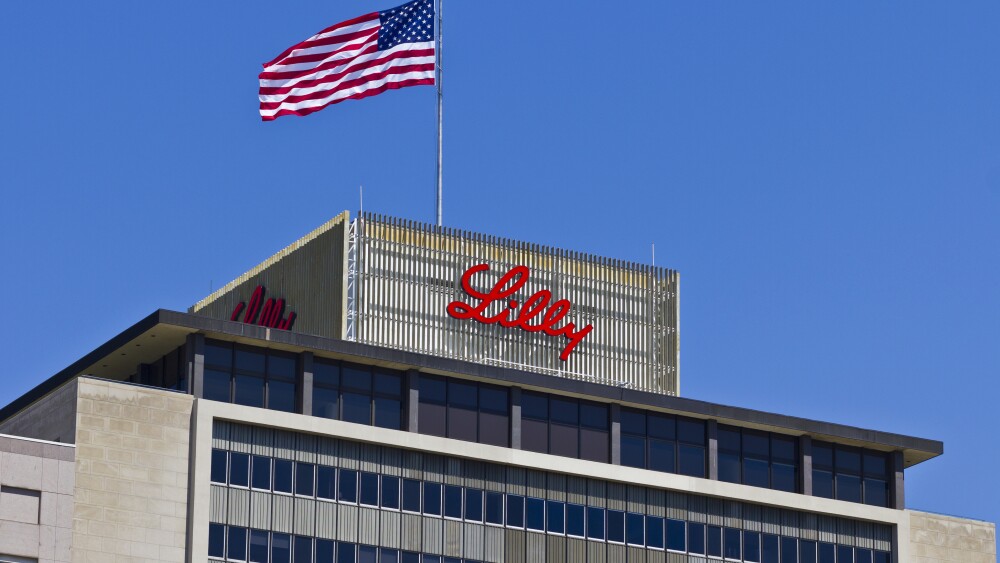“In this trial, we saw a high level of activity, including a rapid decrease in CA 19-9, a marker for pancreatic cancer, and a dramatic decrease in the sizes of tumors,” said Daniel Von Hoff, M.D., Physician in Chief of the Translational Genomic Research Institute (TGen) and Chief Medical Officer for the Scottsdale Clinical Research Institute at Scottsdale Healthcare in Arizona. “The fact that we saw this kind of activity in a Phase I trial is impressive, especially since Phase I trials are typically designed to test for safety.”
In an ongoing research program, SPARC (Secreted Protein Acidic and Rich in Cysteine) was commonly found in pancreatic cancer specimens; a finding that was the basis for this Phase I clinical trial. SPARC is also believed to be a target for nab-paclitaxel due to a SPARC-albumin interaction. Patients whose tumors are SPARC positive have been previously associated with poor survival relative to patients whose tumors are SPARC negative.
In this trial, patients with advanced pancreatic cancer with no prior chemotherapy except as a radiation sensitizer received escalating doses of nab-paclitaxel (ABRAXANE®) from 100 mg/m2 to 150 mg/m2 combined with 1000 mg/m2 of gemcitabine. Researchers from TGen/SHC, Johns Hopkins, University of Alabama, and South Texas Hematology/ Oncology reported on the first 20 patients who received 100 mg/m2 of nab-paclitaxel. The study will eventually include 42 patients. Investigators assessed tumor response by measuring levels of the cancer marker CA 19-9 and by PET and/or CAT scan. A drop in CA 19-9 levels has been previously linked in other research with improved survival.
Of the original 20 patients enrolled at the nab-paclitaxel 100 mg/m2 dose, 17 had levels of CA 19-9 that could be evaluated. CA 19-9 levels dropped more than 20 percent in 82 percent of patients, researchers report. Reductions in CA 19-9 of more than 70 percent were observed in 64 percent of patients. Utilizing CAT scan criteria, 9 of the 16 patients (56 percent) who had serial scans had partial responses. Twelve of the 16 patients (75 percent) had partial responses or stable disease for more than four months. SPARC data were available in 12 patients for which response data were available. Six of 8 (75 percent) SPARC positive patients responded to treatment while only 1 of 4 (25 percent) SPARC negative patients responded to treatment.
Side effects were considered tolerable. The most common side effect was low blood counts, followed by fatigue and occasional peripheral neuropathy (numbness and/or tingling of hands and feet).
Based on these results, Abraxis plans to conduct additional studies to evaluate the safety and efficacy of ABRAXANE® in patients with first and second-line pancreatic cancer.
About Pancreatic Cancer
The American Cancer Society predicts that, in 2008, about 37,680 people in the United States will be found to have pancreatic cancer and about 34,290 will die of the disease. The lifetime risk of developing pancreatic cancer is about 1 in 79. It is about the same for both men and women.
About ABRAXANE®
The U.S. Food and Drug Administration (FDA) approved ABRAXANE for Injectable Suspension (paclitaxel protein-bound particles for injectable suspension) (albumin-bound) in 2005 for the treatment of breast cancer after failure of combination chemotherapy for metastatic disease or relapse within six months of adjuvant chemotherapy. Prior therapy should have included an anthracycline unless clinically contraindicated.
ABRAXANE® is a solvent-free chemotherapy treatment option for metastatic breast cancer.
Developed using Abraxis BioScience’s proprietary nabTM technology platform, ABRAXANE is a protein-bound chemotherapy agent, which combines paclitaxel with albumin, a naturally-occurring human protein.
ABRAXANE is currently in various stages of investigation for the treatment of the following cancers: first-line metastatic breast, non-small cell lung, malignant melanoma, pancreatic, gastric, and head and neck.
The most serious adverse events associated with ABRAXANE in the randomized metastatic breast cancer study for which FDA approval was based included neutropenia, anemia, infections, sensory neuropathy, nausea, vomiting and myalgia/arthralgia. Other common adverse reactions included anemia, asthenia, diarrhea, ocular/visual disturbances, fluid retention, alopecia, hepatic dysfunction, mucositis and renal dysfunction. For the full prescribing information for ABRAXANE, including Boxed Warning, please visit www.abraxane.com
ABRAXANE was developed by Abraxis BioScience. ABRAXANE is marketed in the United States under a co-marketing and sales agreement between Abraxis and AstraZeneca Pharmaceuticals LP.
About Abraxis BioScience
Abraxis BioScience is a fully integrated global biotechnology company dedicated to the discovery, development and delivery of next-generation therapeutics and core technologies that offer patients safer and more effective treatments for cancer and other critical illnesses. The company's portfolio includes the world's first and only protein-bound nanoparticle chemotherapeutic compound (ABRAXANE), which is based on the company's proprietary tumor targeting technology known as the nab™ platform. The first FDA approved product to use this nab™ platform, ABRAXANE, was launched in 2005 for the treatment of metastatic breast cancer. Abraxis trades on the NASDAQ Global Market under the symbol ABBI. For more information about the company and its products, please visit www.abraxisbio.com.
Gemzar® is a registered trademark of Eli Lilly and Company.
Contact:
Abraxis BioScience, Inc. Daniel Saks, 310-405-7417 Investor Relations and Corporate Communications
Source: Abraxis BioScience, Inc.




